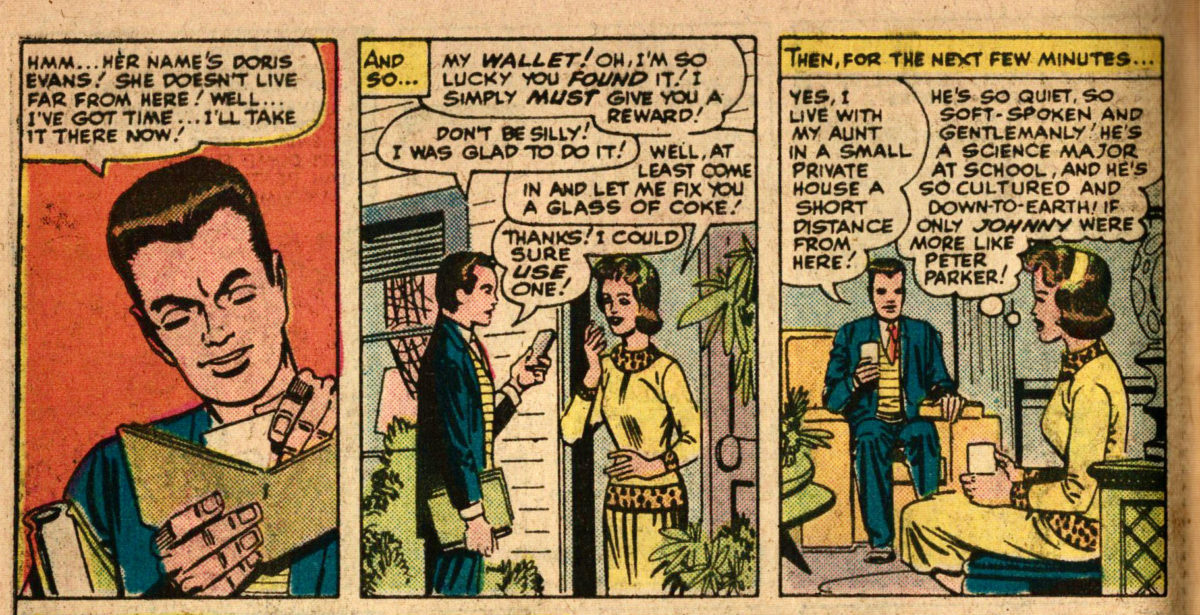Featuring: Thor
Release: May 3, 1966
Cover: July 1966
12 cents
Stan the Man Lee, Writer
Jack King Kirby, artist
Vince the Prince Colletta, delineator
Artie Pussycat Simek, letterer
16 pages
| Previous | #503 | Next |
|---|---|---|
| Thor #129, Story B | Reading order | Thor #130, Story B |
| Thor #129, Story B | Thor | Thor #130, Story B |
” Let there be no further battle! Only the weakling seeks to prove his strength at every turn!”
“Thy words have wisdom, Thor– even as thy limbs have power enow to make Hercules pause! Henceforth, I shall call thee friend!”
“And I thee!”
“What riotous revels we shall enjoy together! What battles we shall share, at each other’s side!”
“Alas, Olympian– revels are not for such as me– And, my hammer swings only for justice– never for the thrill of battle alone!”
“But, what good then to be a god?”
“Thy careless query, Hercules, is far more profound than you suspect!”

Stan the Man Lee. Jack King Kirby. Every issue Stan’s had new nicknames for the creative team. We’ve seen this particular set of nicknames before. And we’ll see it again. These are the nicknames that will stick for Stan and Jack. The Man and The King.

The issue’s title is “Thunder in the Netherworld”. Seems like a missed opportunity to call it “Thunder Down Under”.
Hercules had stupidly signed a contract saying he’d rule the Netherworld and let Pluto free. Hercules thought it was a movie deal. Zeus is enforcing the contract. Hercules’ only way out is for a champion to fight in his stead, to challenge Pluto and the armies of the dead to win Hercules’ freedom.
Thor is that champion.
Continue reading “Thor #130”


























